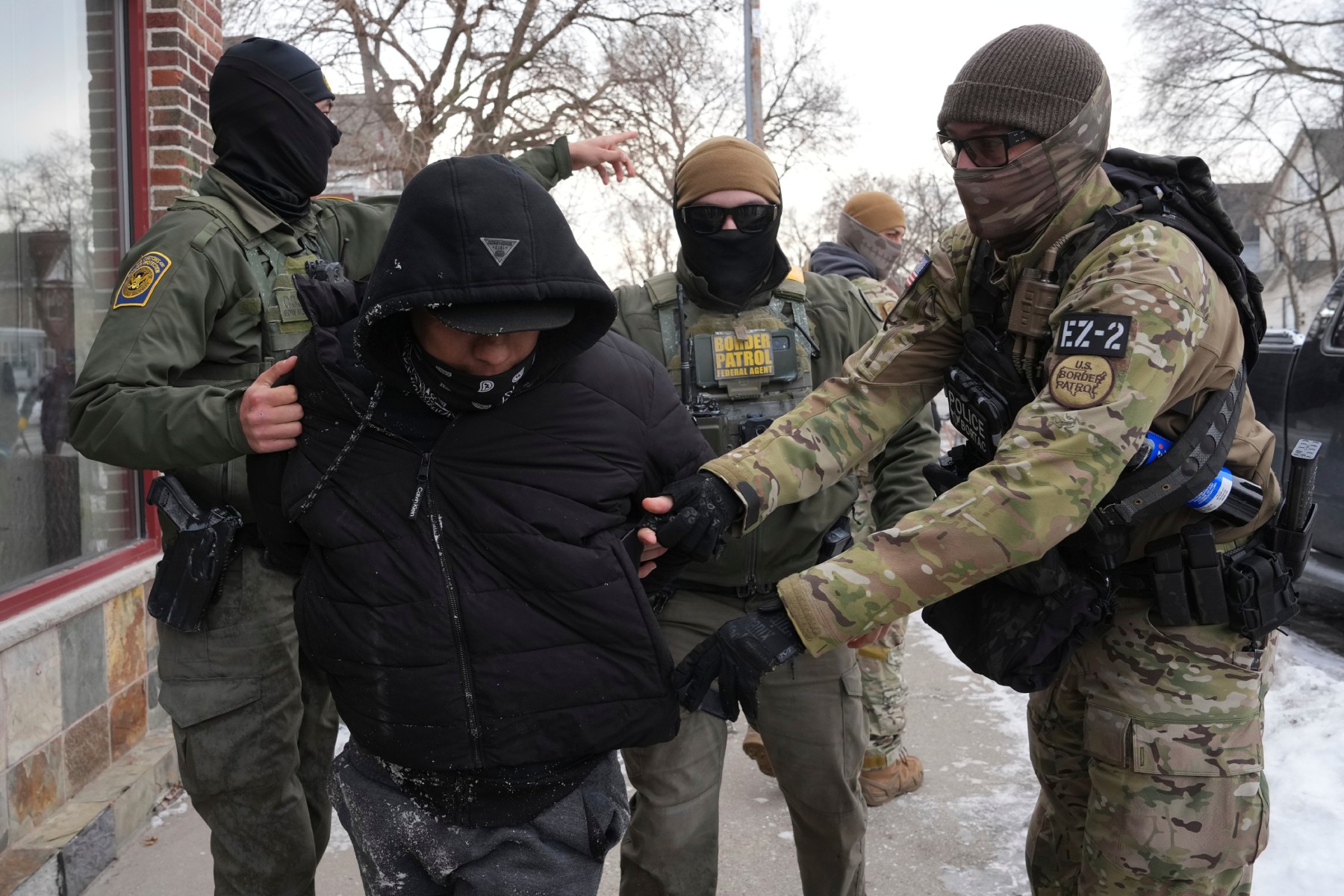
Colorado’s law enforcement officers will no longer recognize “excited delirium” after a state regulatory board voted to strike the controversial diagnosis on Friday from all training documents starting in January.
The move, which was passed at the state Peace Officers Standards and Training board meeting unanimously and without debate, comes as two Aurora paramedics face felony charges for giving Elijah McClain, an unarmed, innocent Black man, an overdose of ketamine, in part, because they believed he was suffering from the condition.
Advocates have long been critical of the diagnosis, which was mostly a law enforcement term used to characterize suspects acting hyperactive or agitated during police encounters.
The term has a history of being racially charged: The Virginia Law Review looked at 166 in-custody deaths between 2010 and 2020 and found that 56 percent attributed “excited delirium” to Black and Latino victims. Critics say the diagnosis is often used to absolve law enforcement from culpability when someone dies in custody.
“If you look at the racist descriptions they use against Black people … him being wild, him being in a fit, it’s a legal justification for a racial stereotype,” said Hashim Coates, an Aurora community activist and political strategist. “It’s been overused … it all works together to help provide this defense to law enforcement.”
“If you look at the racist descriptions they use against Black people … him being wild, him being in a fit, it’s a legal justification for a racial stereotype. It’s been overused … it all works together to help provide this defense to law enforcement.”
— Hashim Coates, Aurora community activist and political strategist
A handful of prominent physician groups have also sharply criticized the term since George Floyd’s 2020 death and the national outcry against racist policing. In 2021, the American Medical Association said that current evidence doesn’t support the diagnosis at all. In April, the National Association of Medical Examiners called for its members to stop using “excited delirium” as a cause of death. And in October, the American College of Emergency Physicians withdrew one of its earlier research papers on the subject and disavowed the term.
McClain, a 23-year-old massage therapist, was walking home from a convenience store in August 2019 when three Aurora police officers stopped him after receiving a call about a suspicious person. He was forcibly taken to the ground, given two carotid holds, which cut blood flow off to his brain, and handcuffed while he was vomiting into the mask he was wearing and inhaling it.
When paramedics arrived, he was given, involuntarily, 500mg of the powerful sedative ketamine, which was too large a dose for his body weight.
McClain was catatonic and not speaking at that time, but law enforcement officers can be heard on body-worn cameras telling the medics that he was exhibiting “crazy” strength and that he nearly did a push-up with all three officers holding him down at one time.
McClain lost his pulse in the ambulance and never regained consciousness. He was declared brain-dead a few days later.
Three officers and the two paramedics, Jeremy Cooper and Peter Cichuniec, were charged in his death. Two officers have been acquitted and one, Randy Roedema, was convicted of criminally negligent homicide.
Cooper and Cichuniec, who are amid their trial now as co-defendants, followed their protocol for “excited delirium” in 2019, their attorneys said in opening statements, which calls for use of chemical sedation.
McClain’s death sparked state lawmakers to pass a new law that strictly limited the use of ketamine in non-medical settings.
State Rep. Judy Amabile, who represents Boulder, has been outspoken about reforming police language and training in mental health crises.
“I’m really glad to see this,” she said. “Now we need to make sure we don’t substitute one term for another term and we do in fact change the culture a little bit and say we are going to describe symptoms and we’re going to train on appropriate responses to the behaviors we are seeing.”
And now, police officers are not going to be allowed to use the term, or train on the diagnosis, at all.
State officials also voted to strike other terms from law enforcement training manuals, including “cocaine psychosis” and “sudden in custody death.”
“Students will learn and understand procedures for first aid and transfer to medical care of subjects who are in custody,” the state document said. “The students will learn and understand law enforcement roles in violent encounters with subjects in altered mental states or a justifiable medical emergency.”
The Peace Officers Standards and Training, or POST, board started looking into striking the term from all law enforcement language about six months ago and voted on it today after a presentation from a subcommittee charged in improving arrest control tactics training, said Erik Bourgerie, the POST director.
Fort Collins Police Chief Jeff Swoboda, who is on the POST board and voted to strike the term, said he supports the move away from the diagnoses in favor of more neutral terms that talk about suspects in “distress.”
“Looking at distress and the care people should receive after any sort of arrest and when they’re in custody and getting the help that they need is where my understanding was,” he said. “And now recognizing, if someone is in distress whatsoever, how should we treat people in custody?”
Coates, who was among the activists pushing for answers from Aurora city officials since 2019 in McClain’s death, said he’s watched the body-worn camera and McClain didn’t show any signs of combativeness with law enforcement that night and that officers were clearly using the language that he was “crazy strong” as a move to protect themselves.
“He was not wild. I’m sure that Elijah threw bigger fits when he was being disciplined as a kid than he did that day with the police officers. I didn’t hear that type of rage. I’ve seen people be combative with police, and that wasn’t there.”
— Hashim Coates, Aurora community activist and political strategist
Colorado Matters Producer Tom Hesse contributed to this story.









